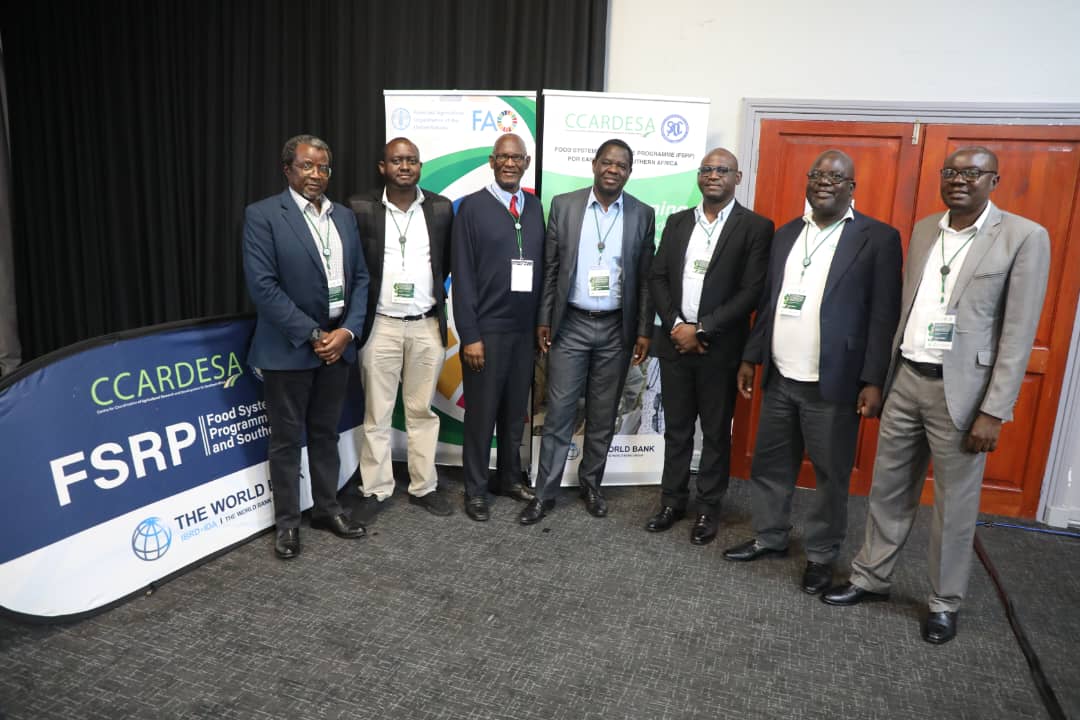Reported by: The Agency Media.
Date: March 25, 2025
Pretoria, South Africa.
Zambia has reaffirmed its dedication to aligning national agricultural strategies with regional efforts aimed at transforming soil health and fertilizer usage across Southern Africa.
Speaking at the conclusion of the Southern Africa Fertilizer and Soil Health Programme (SAFSHP) Validation Workshop in Pretoria, Ministry of Agriculture Director, Dr. Chizumba Shepande, underscored Zambia’s commitment to domesticate the SADC Soil Health and Fertilizer Action Plan in line with the country’s broader agricultural and climate-smart development goals.
Dr. Shepande emphasized that Zambia’s efforts will integrate seamlessly with key frameworks, including the National Agricultural Policy and the Climate-Smart Agriculture Investment Plan, to enhance productivity and sustainability for smallholder farmers.
Hosted by the Centre for Coordination of Agricultural Research and Development for Southern Africa (CCARDESA), in partnership with the Food and Agriculture Organization (FAO) and SADC, the workshop brought together government representatives, agricultural researchers, policymakers, development partners, and private sector players. Their shared mission: to harmonize regional strategies for improving soil health, boosting fertilizer efficiency, and scaling agroecological practices that support climate resilience.
Dr. Shepande noted that Zambia is already advancing on several fronts, particularly in strengthening extension services and rolling out digital decision-support tools designed to help farmers optimize input use and manage climate risks. These initiatives, he said, are central to achieving the ambitious targets set by President Hakainde Hichilema: producing 10 million metric tonnes of maize, one million metric tonnes of wheat, and one million metric tonnes of soybeans annually by 2027.
The director highlighted that the success of these targets will rely on robust public-private partnerships, evidence-based policymaking, and inclusive stakeholder engagement. “We recognize that improved farmer access to high-quality fertilizers and advanced soil management techniques will not happen in isolation. It will require collaborative efforts across governments, the private sector, and development partners to build capacity, deliver training, and drive innovation at scale,” Dr. Shepande said.
During the workshop, participants reviewed draft proposals and contributed to refining strategic priorities that will shape SADC’s agricultural trajectory. Country presentations showcased innovations in sustainable agriculture, with Zambia contributing lessons from its push toward climate-smart farming and integrated soil fertility management.
The SAFSHP workshop concluded with a shared understanding that the region’s food security and climate resilience will depend on each member state’s ability to translate regional plans into actionable local programs, supported by technology, financing, and political will.
Dr. Shepande reaffirmed Zambia’s readiness to take up this challenge, stating, “As a nation, we are positioning ourselves not only to meet domestic production goals but also to become a model for sustainable, climate-smart agriculture in the region.”
With growing urgency to feed expanding populations under increasingly volatile climatic conditions, Zambia’s alignment with the SADC Soil Health and Fertilizer Action Plan signals both regional solidarity and forward-looking national ambition in securing food security and sustainable agricultural growth.
The Agency.

